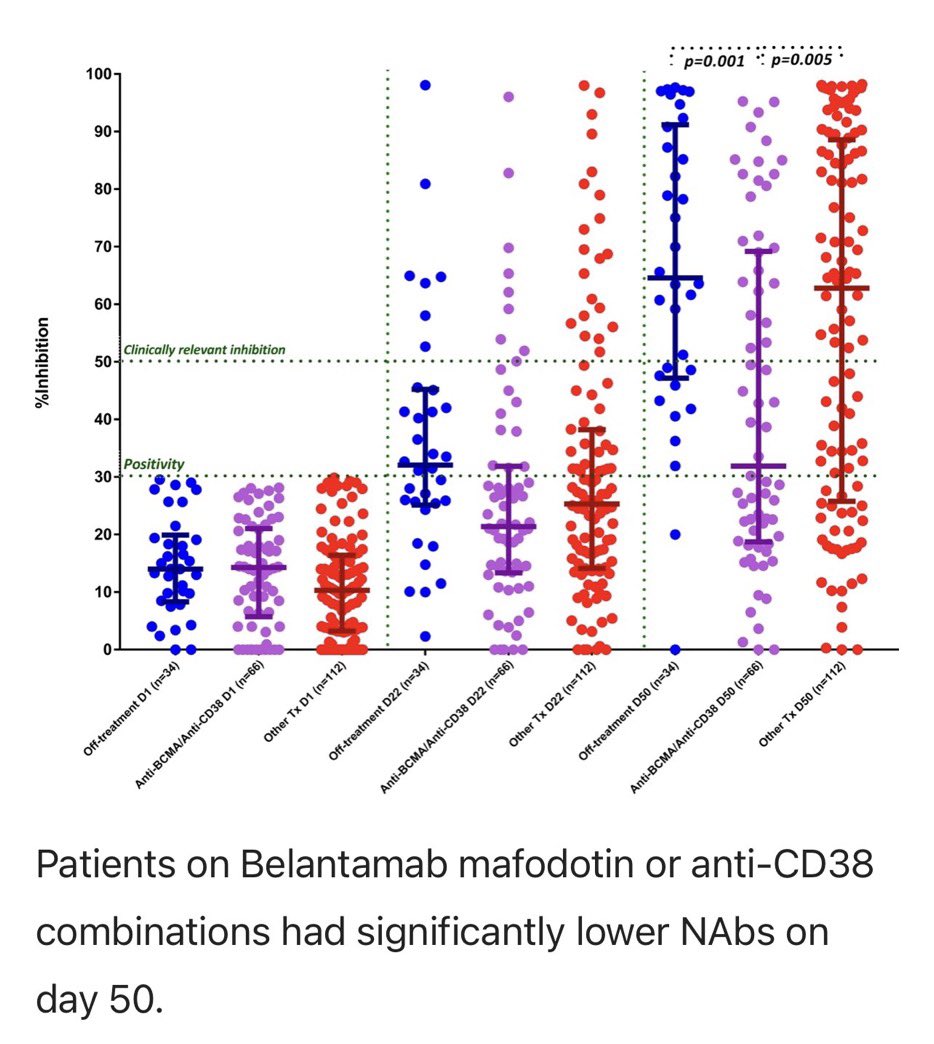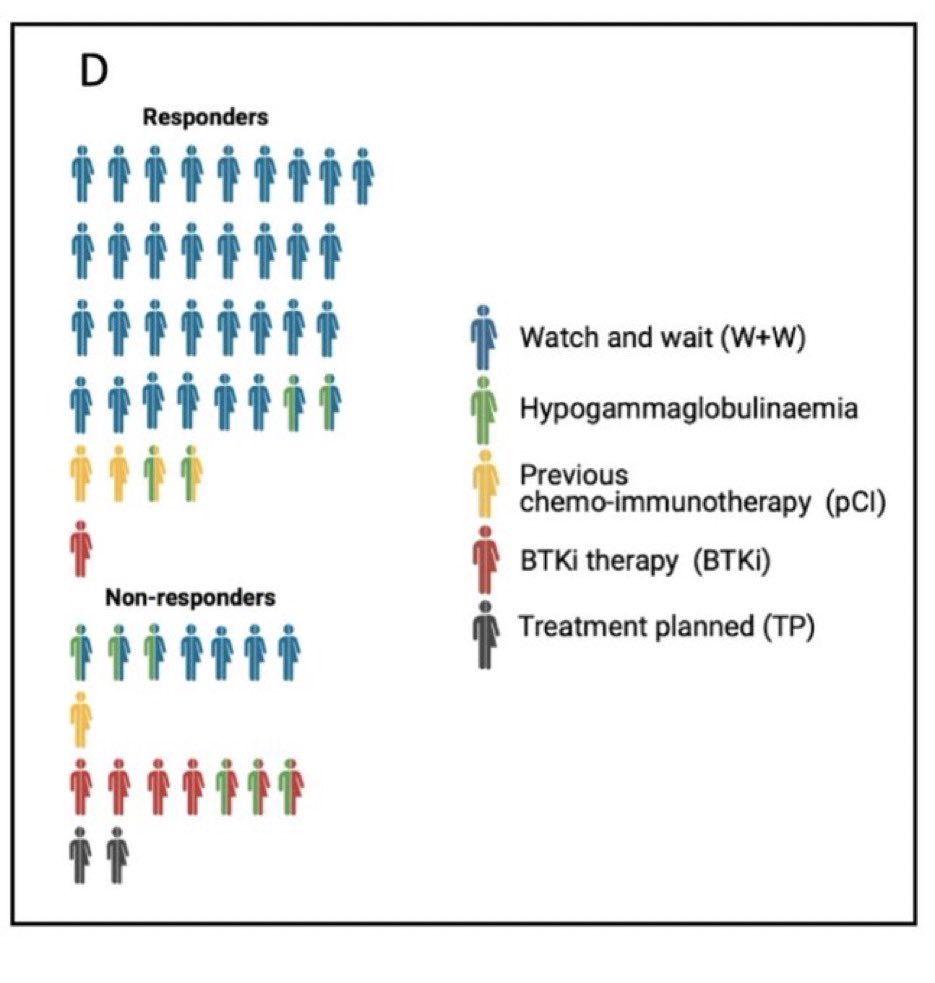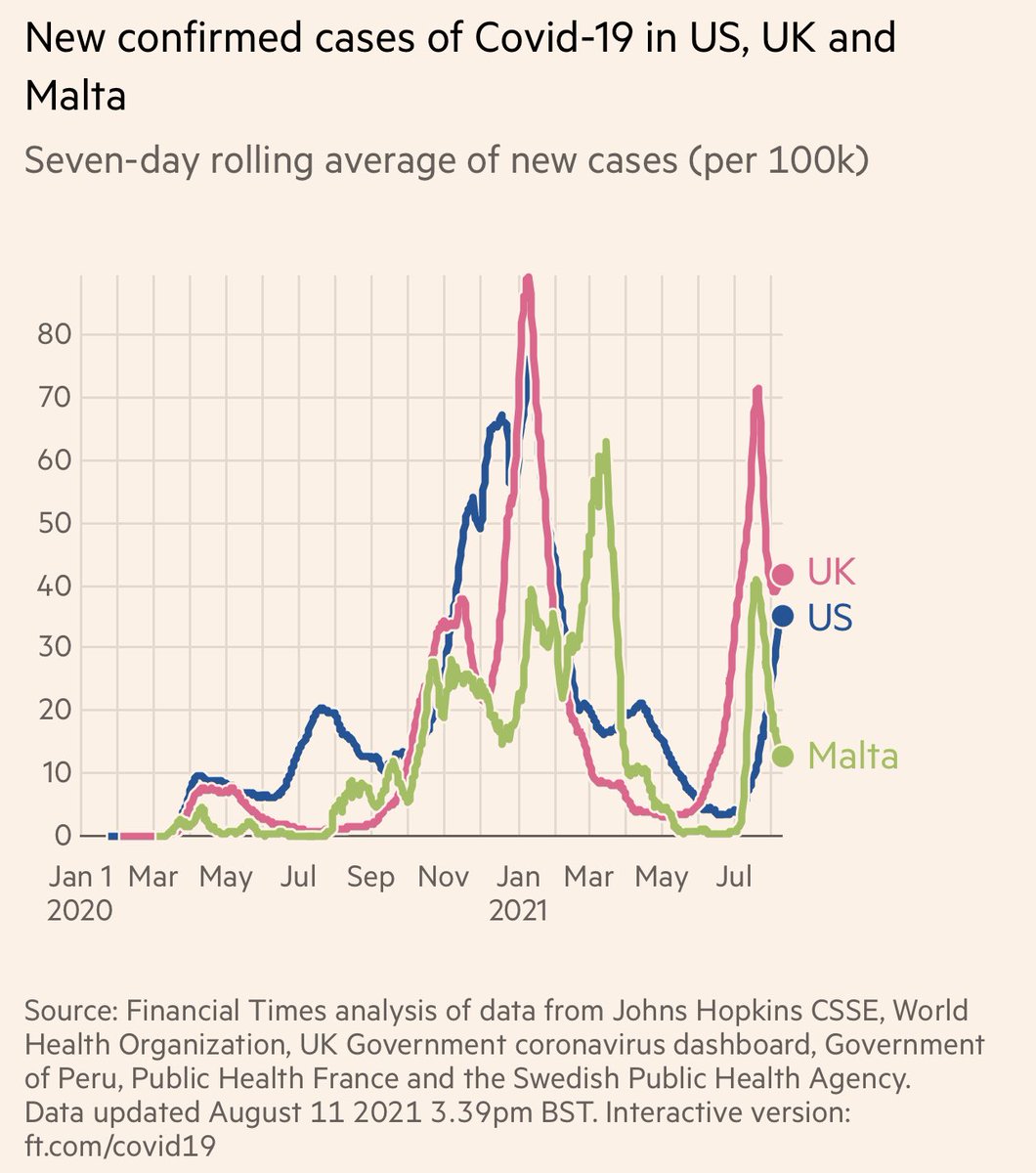
Three articles in the last few days in Blood Cancer Journal #BCJ showing reduced immune responses to COVID vaccines in patients with blood cancers.
1) Myeloma: especially patients on daratumumab and belantamab. nature.com/articles/s4140…
1) Myeloma: especially patients on daratumumab and belantamab. nature.com/articles/s4140…

Chronic lymphocytic leukemia. Especially patients on BTK inhibitors (Eg., ibrutinib)nature.com/articles/s4140… 

Reduced immune responses in hematologic malignancies. Only half the patients appear to generate sufficient immune protection. Especially if on B cell targeting treatments. #BCJ @BloodCancerJnl @Mohty_EBMT nature.com/articles/s4140…
All articles are open access at nature.com/BCJ @BloodCancerJnl
In light of this, FDA approval of booster mRNA dose is very much appreciated.
https://twitter.com/vincentrk/status/1425794967642034177
• • •
Missing some Tweet in this thread? You can try to
force a refresh







